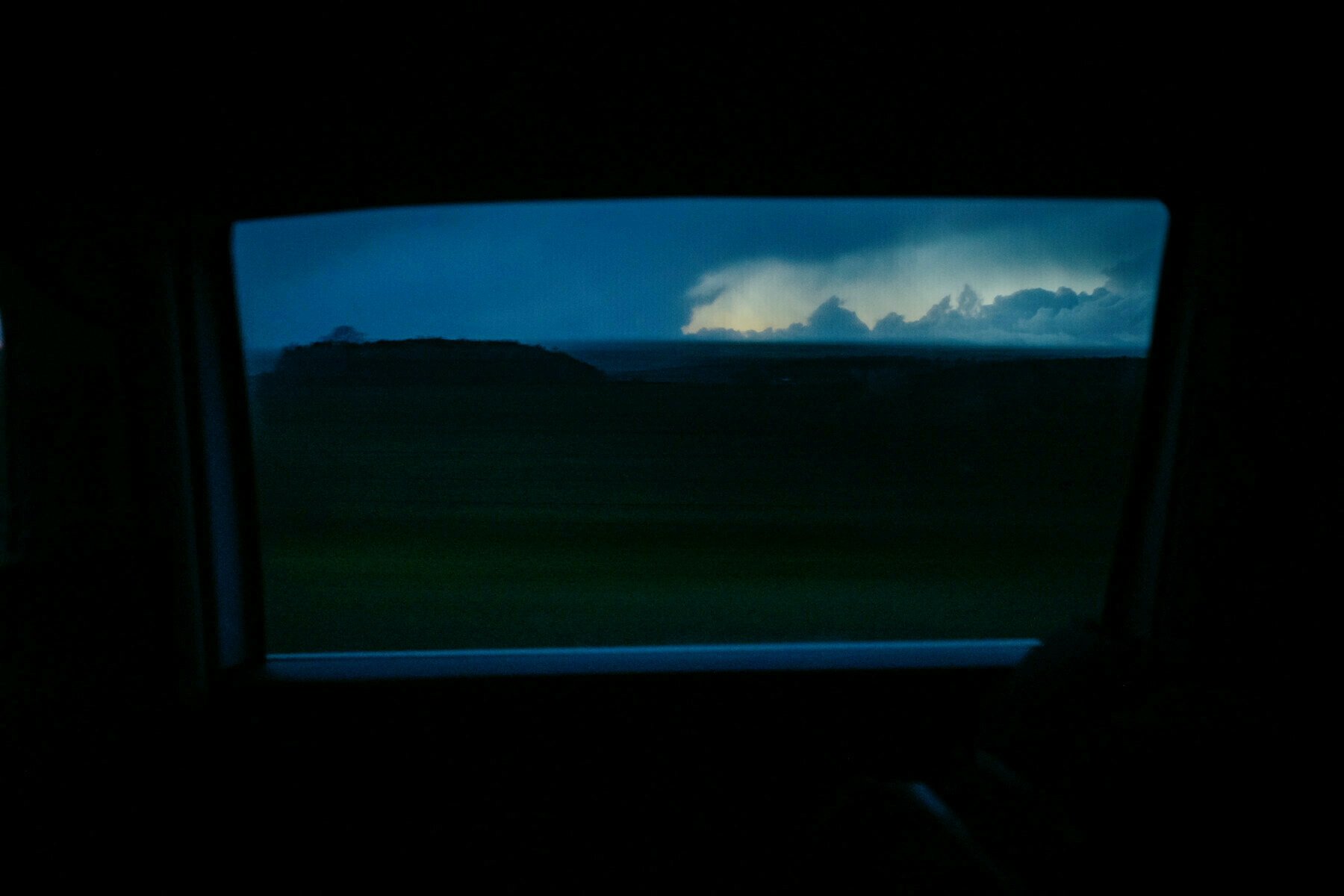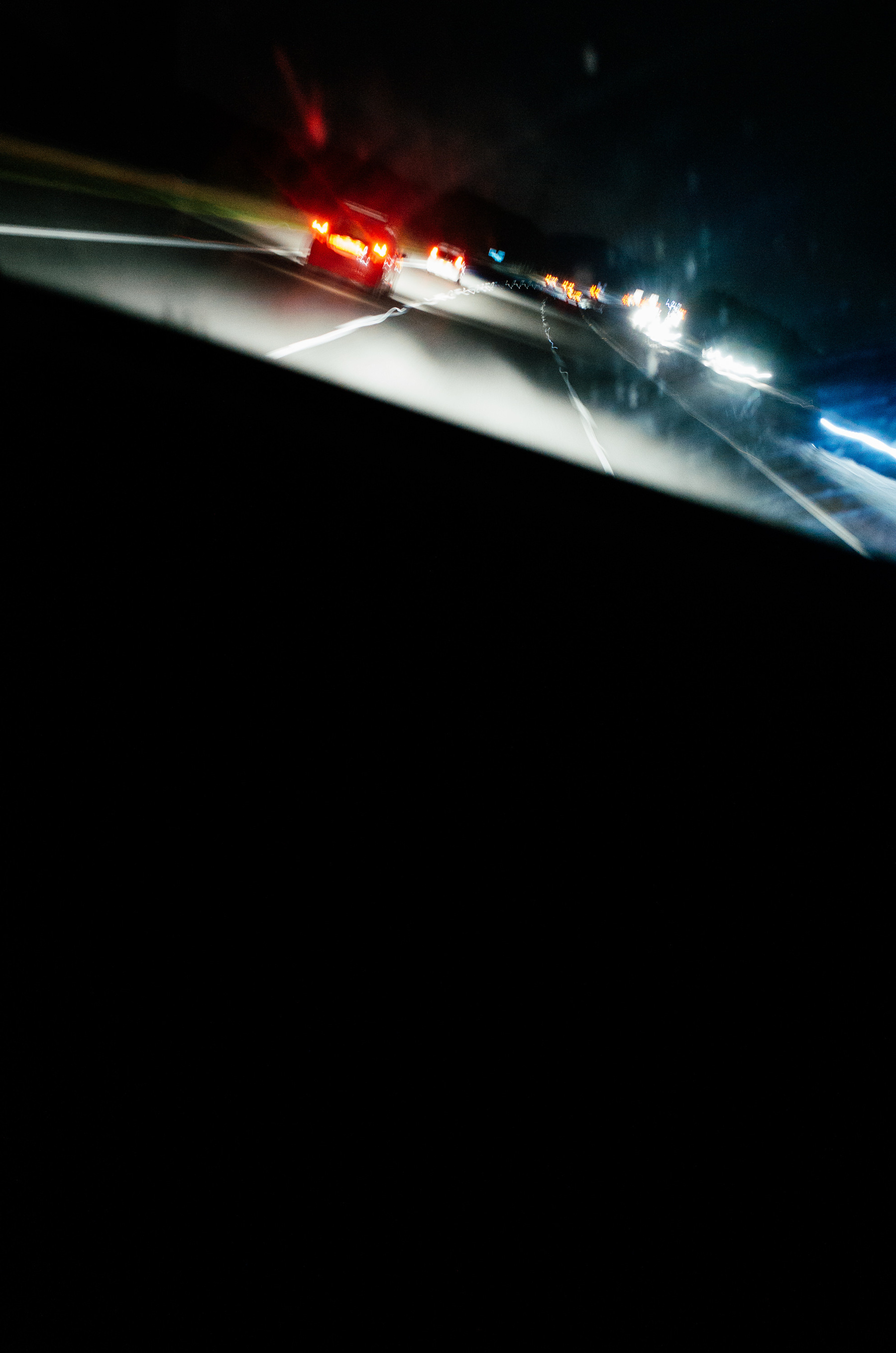Meditation
“If I had one thing to say to artists, it would be to be patient. And to be ignorant of what you think you know. If you don’t get the answer that you were expecting, maybe that’s a good thing. Knowing what you’re doing is overrated.”
—Pope L
From this interview on the (excellent) Louisiana Channel. H/t Austin Kleon
And a corollary: actively seeking situations where you don’t know what you are doing, forces you to come up with novel solutions. Even when those fail, it’s often fruitful — producing happy accidents and revealing weaknesses to work on and new avenues to explore.
Eternal Cognitive Locations
Apr 6, 2024
I loved Matt Webb’s short post about driving in the dark, listening to the Twin Peaks soundtrack, his wife and child asleep. He talks about night driving as “an eternal cognitive location”, an in-between space, a thinking state.
In Matt’s lovely words:
I think you access something other and special when you escape time, escape selfhood, whether that’s driving in the dark or sitting in a hotel lobby or walking, that’s another one.
It does a disservice to this cognitive state to believe that it can be found only with psychedelics or meditation or whatever, whereas there are mundane apertures too, and we do a disservice to alternative cognitive states to choose to name “flow," simply because it relates to productivity, and to leave nameless this mode of becoming diffuse and sensitive, able to sense resonances and new ideas from species memory and from the future, and from there, pluck them, and return home with them.
Driving at night is just one of the situations that act as a gateway into a similar subtle and unbounded creative state for me. I love the feeling of being the only passenger still awake on a night flight, listening to music, perhaps looking out the window at the faint black curve of the edge of the world. Or being awake in the early hours pacing back and forth, lulling the baby in your arms to sleep using a combination of deep breathing and telepathy. Also, working late at my old studio on a Friday or Saturday night, the building empty, the present moment stretched to infinity, nothing beyond the glow of the screen and the warm pool of light from the desk lamp.
It’s a different kind of quiet in the early hours. Being alone, or alone amongst others is a big part of what makes it peaceful, but it’s not lonely. The tranquility embraces you, smudging your edges. Comforted, you’re able to let the tendrils of your thinking radiate outwards. The darkness is essential too — it drapes a blanket of stillness over the rest of the world — as if the only movement in the block universe is happening in the dimly-lit space that surrounds you. You’re outside of spacetime, gestating in womb-time.

A Transcendental Gap
May 12, 2023“With your thought you can’t encapsulate everything that an apple is, because you forgot to taste it. But biting into an apple won’t capture everything an apple is either, because you forgot to tunnel into it like a worm. And so with tunneling too. What you have, in each case, is not the apple in itself, but apple data: you have an apple thought, you have an apple bite, you have an apple tunnel. A diagram of every possible access to the apple throughout all of time and space—assuming it could be made (which it couldn’t)—would miss the kind of apple that a less complete diagram would capture. And in both cases you wouldn’t have an apple, you would have an apple diagram. But for sure there is apple data: apples are green, round, juicy, sweet, crunchy, packed with Vitamin C; they make an appearance in Genesis as the most unfortunate snack in human history, they sit on boys’ heads waiting for arrows to shoot them in stories…. None of these things are the apple as such. There is a radical gap between the apple and how it appears, its data, such that no matter how much you study the apple, you won’t be able to locate the gap by pointing to it: it’s a transcendental gap.”
—Timothy Morton, Being Ecological (Cambridge, MA: MIT Press, 2018), xxix–xxx.
Via The Path of Aliveness by Christian Dillo 📚
Present, Spacious, Alive
Apr 26, 2023Following on from the previous post, I loved this podcast/dharma talk
Christian Dillo on the case against happiness, the problem of having a problem with our problems, merely doing it, unconditional aliveness, the difference between pain and suffering, and saying ‘yes’ to the truth of your experience.
Suffering = Pain x Resistance
Christian Dillo on Pain and Letting Go
I.
We need to reverse the habituated get-away-from-pain dynamic and create a new turn-toward-pain dynamic. This turning toward is friendly or, as I will call it going forward, kind, because contrary to our common and deeply embedded habit of resistance, it accepts and even welcomes what is already the truth of our experience. If something is already the truth of our experience at this particular moment, why resist it, why not be intimate and present with it as it is?
II.
For most people, letting go of pain means getting rid of pain. This is an understandable error because the pursuit of happiness compels us to maximize pleasure and minimize pain. We can begin to enter a deeper understanding of letting go when we turn the idea upside down and explore what it means to let pain come. Look at it this way: letting go is the opposite of grasping and also the opposite of pushing away. Let’s look at both, one at a time.
From The Path of Aliveness